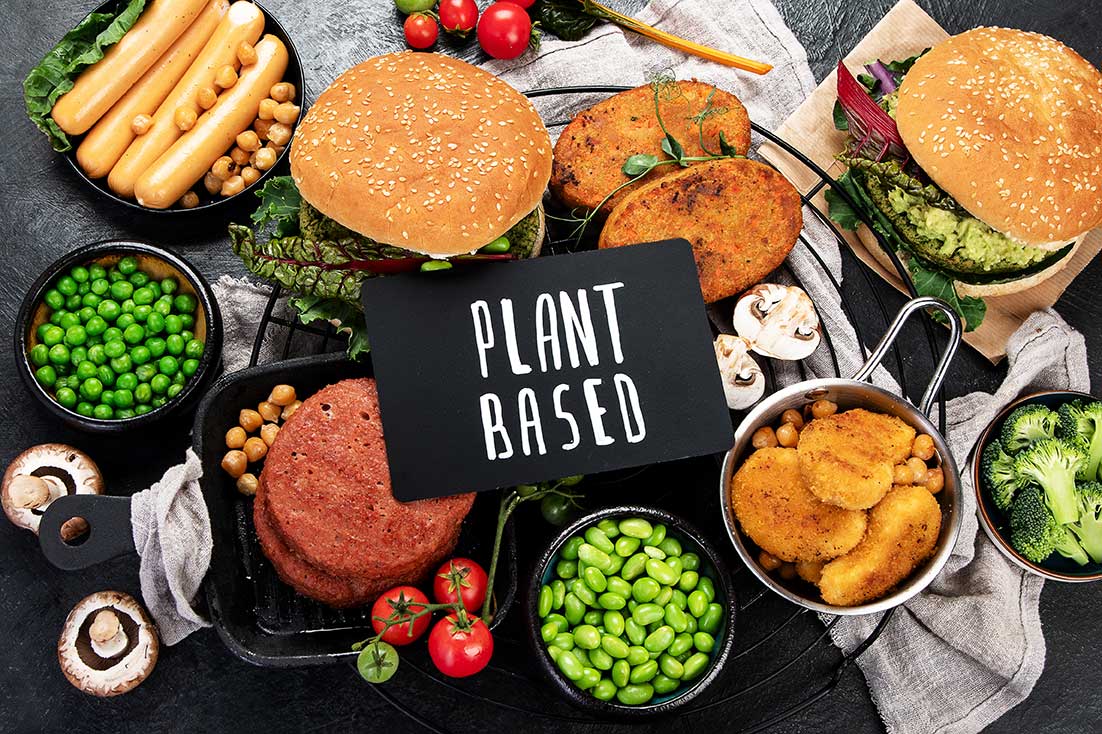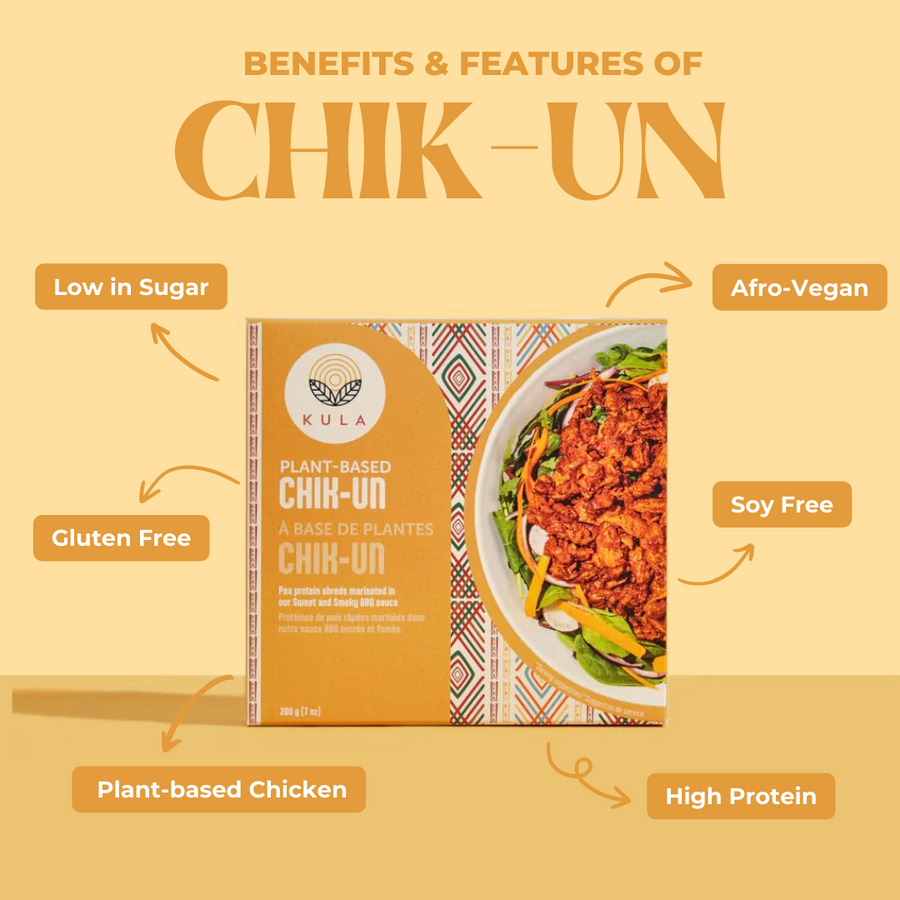Hidden Ingredients in Sugar Free Sauces: What to Watch Out For
Hidden Ingredients in Sugar Free Sauces: What to Watch Out For
Blog Article
All Regarding Healthy Food: Benefits of Checking Out Plant Based Options
The discussion bordering plant-based diets has obtained significant interest in the last few years. Many people are exploring the possible health advantages, dietary advantages, and ecological impacts associated with these nutritional selections. As individuals come to be much more familiar with their food's influence on wellness and sustainability, questions develop concerning the practicalities of embracing such a lifestyle. What certain modifications can one expect, and exactly how might these selections improve not only individual wellness yet also the earth's future?
Comprehending Plant-Based Diets
Several individuals connect plant-based diet regimens mainly with vegetarianism or veganism, these diet plans can encompass a large array of eating patterns that prioritize whole, minimally processed plant foods. Such diets commonly include fruits, vegetables, entire grains, nuts, beans, and seeds, while getting rid of or limiting pet items. This versatility enables people to customize their dietary choices according to individual choices and nutritional demands. Some might embrace a largely plant-based diet regimen while still sometimes consuming meat or dairy, frequently referred to as a flexitarian technique. The emphasis continues to be on incorporating more plant foods, which can cause a diverse variety of dishes and tastes. Understanding these various interpretations of plant-based consuming is necessary for appreciating its accessibility and allure in contemporary food society.
Wellness Perks of Plant-Based Foods
The health and wellness advantages of plant-based foods are significant, offering a nutrient density advantage that supports general well-being. Research suggests that these foods can improve heart health and wellness and play an essential function in reliable weight administration. By including a lot more plant-based options, people might boost their dietary selections and promote long-term wellness.
Nutrient Density Benefit
Nutrient density plays a necessary role in the wellness benefits of plant-based foods, making them an engaging choice for those seeking a balanced diet. Plant-based foods, such as fruits, vegetables, vegetables, nuts, and whole grains, are frequently rich in vital vitamins, minerals, and antioxidants while being lower in calories. This high nutrient thickness enables people to consume less calories while still meeting their dietary needs. In addition, these foods are packed with dietary fiber, promoting gastrointestinal wellness and assisting in weight administration. By integrating nutrient-dense plant-based options, consumers can boost their total health, support their immune systems, and minimize the danger of chronic conditions. Inevitably, the nutrient density of plant-based foods emphasizes their significance in a health-conscious way of life.
Heart Health Renovation

Weight Management Assistance
Along with promoting heart wellness, a plant-based diet can significantly help in weight monitoring. This dietary method emphasizes whole foods such as fruits, veggies, beans, nuts, and entire grains, which are typically lower in calories and greater in fiber contrasted to animal-based products. The high fiber content helps raise satiety, reducing total calorie intake. Plant-based diets are often abundant in crucial nutrients while reduced in unhealthy fats, making it less complicated to keep a healthy weight. Study indicates that individuals who take on a plant-based way of life have a tendency to have lower body mass indexes (BMIs) and experience more successful weight reduction contrasted to those who eat meat-heavy diet regimens. Embracing plant-based options is a calculated option for effective weight monitoring.
Nutritional Value of Plant-Based Active Ingredients
Plant-based ingredients are rich in crucial nutrients, offering a diverse selection of vitamins, minerals, and anti-oxidants that add to total health. A comparison of healthy protein resources discloses that while pet items are often considered as exceptional, several plant-based choices offer sufficient protein and various other beneficial compounds. Understanding the dietary worth of these active ingredients can aid individuals make informed nutritional choices.
Important Nutrients in Plants
Nutrient-rich active ingredients found in plants offer a varied array of crucial vitamins and minerals that contribute greatly to overall health. These active ingredients are abundant in vitamins A, C, and K, which sustain immune function, vision, and blood clot, specifically. In enhancement, plants provide important minerals such as magnesium, potassium, and calcium, essential for heart health and wellness, muscular tissue function, and bone strength. The presence of fiber in plant-based foods help food digestion and advertises a healthy and balanced gut microbiome. Antioxidants, located perfectly in vegetables and fruits, help combat oxidative stress and minimize inflammation. Numerous plant foods are low in calories yet high in nutrients, making them a superb selection for those looking for to keep a healthy weight while making certain ideal nutrient intake.

Contrasting Healthy Protein Resources
Protein resources vary considerably in their dietary profiles, with plant-based ingredients supplying one-of-a-kind advantages. Unlike animal proteins, which commonly contain hydrogenated fats and cholesterol, plant healthy proteins have a tendency to be reduced in these unhealthy parts. Legumes, nuts, seeds, and whole grains are rich in necessary amino acids, fiber, vitamins, and minerals. Lentils give high protein content along with significant iron and folate, while quinoa is a full healthy protein, offering all 9 essential amino acids. In addition, plant-based proteins are commonly gone along with by anti-oxidants and phytochemicals that sustain total health. The shift to plant-based healthy protein resources not only enhances dietary consumption but additionally aligns with sustainable nutritional practices, minimizing environmental impact and advertising lasting health advantages.
Environmental Influence of Plant-Based Consuming
As awareness of climate modification grows, numerous people are discovering lasting nutritional options that can considerably decrease their environmental impact. Plant-based eating has actually become a significant click here to read factor to minimizing greenhouse gas emissions, which are largely linked with livestock production. The cultivation of fruits, veggies, vegetables, and grains commonly needs less sources, such as water and land, compared to animal farming. Additionally, plant-based diet regimens can bring about reduced deforestation, as less land is required for grazing livestock or expanding pet feed. By changing towards plant-based alternatives, consumers can sustain biodiversity and advertise much healthier ecological communities. On the whole, accepting plant-based eating not just benefits individual wellness yet also represents an essential action towards environmental sustainability and preservation efforts.
Conquering Common Misconceptions
While several individuals acknowledge the advantages of a plant-based diet regimen, several false impressions commonly prevent them from totally welcoming this way of life. An usual belief is that plant-based diets do not have sufficient healthy protein; nevertheless, numerous plant resources, such as vegetables, nuts, and tofu, provide sufficient healthy protein. Additionally, some assume that this diet plan is costly, when actually, staples like beans, rice, and seasonal veggies can be quite budget-friendly. One more misconception is that plant-based consuming is extremely restrictive, whereas it actually supplies a diverse selection of foods and tastes. Ultimately, many fret that a plant-based diet regimen might cause shortages, yet with correct preparation, individuals can acquire all necessary nutrients, consisting of minerals and vitamins, while appreciating a variety of delicious dishes.
Tips for Transitioning to a Plant-Based Way of living
Making the shift to a plant-based way of living can be an improving experience, though it commonly calls for some advice to navigate the first changes. First, individuals are encouraged to begin slowly, incorporating more fruits, veggies, beans, and whole grains right into their dishes while minimizing meat and milk intake. Dish preparation is necessary; preparing a regular menu can help reduce the change and avoid last-minute undesirable choices. Exploring brand-new recipes and cooking methods can also enhance the image source experience and keep exhilaration regarding plant-based eating. In addition, signing up with support system or areas can offer inspiration and share beneficial pointers. Finally, remaining notified concerning nutrition assurances balanced meals, protecting against deficiencies while fostering a healthy, satisfying plant-based way of life.
Delicious Plant-Based Meal Ideas
Checking out scrumptious plant-based meal concepts can influence individuals to embrace an extra nourishing diet. One prominent option is a hearty quinoa salad, including cherry tomatoes, cucumber, and a vibrant lemon-tahini clothing. One more fave is a savory lentil stew, loaded with carrots, celery, and aromatic herbs, perfect for a calming supper. For morning meal, overnight oats made with almond milk, chia seeds, and topped with fresh berries supply a nourishing beginning to the day. Additionally, a dynamic veggie stir-fry with tofu and a selection of colorful veggies can be a quick yet pleasing meal. Finally, velvety avocado salute on whole-grain bread, sprinkled with flavors and seeds, offers a straightforward yet delicious treat. These meals showcase the range and splendor of plant-based consuming.

Frequently Asked Concerns
Can a Plant-Based Diet Regimen Provide Enough Healthy Protein?
The question of whether a plant-based diet can give adequate protein prevails. Numerous resources, including legumes, nuts, seeds, and whole grains, can fulfill protein needs effectively, supporting a nourishing and well balanced diet for individuals.
Are Plant-Based Diet Regimens Suitable for Children?
The viability of plant-based diet plans for kids depends on mindful planning. Sufficient nutrients must be guaranteed, including vitamins, minerals, and healthy proteins. With proper support, such diet Read Full Report regimens can sustain healthy growth and advancement in kids.
Exactly how Do I Eat in restaurants on a Plant-Based Diet plan?
Eating out on a plant-based diet plan includes seeking dining establishments with varied food selections, requesting for alterations, and checking out vegan-friendly options. Preparation in advance and communicating nutritional preferences can improve the dining experience while preserving nutritional options.
What Are Common Irritants in Plant-Based Foods?
Common irritants in plant-based foods consist of soy, gluten, nuts, and seeds - Plant Based Chicken. Individuals adhering to a plant-based diet regimen should be aware of these irritants and check out labels meticulously to avoid unfavorable responses and guarantee risk-free intake
Can Plant-Based Diets Help With Weight Reduction?
Study suggests that adopting a plant-based diet plan might promote weight loss due to its typically lower calorie thickness and higher fiber material. This combination can boost satiation, assisting individuals manage their caloric consumption properly. Numerous people associate plant-based diet plans mostly with vegetarianism or veganism, these diet plans can incorporate a broad variety of consuming patterns that prioritize whole, minimally refined plant foods. Nutrient density plays an important function in the health and wellness advantages of plant-based foods, making them a compelling selection for those seeking a well balanced diet plan. Plant-based diet regimens have been shown to significantly enhance heart health, as they frequently have components that sustain cardio function. In enhancement to promoting heart health and wellness, a plant-based diet regimen can significantly aid in weight administration. An usual belief is that plant-based diet plans lack adequate protein; nevertheless, many plant sources, such as beans, nuts, and tofu, supply enough healthy protein.
Report this page